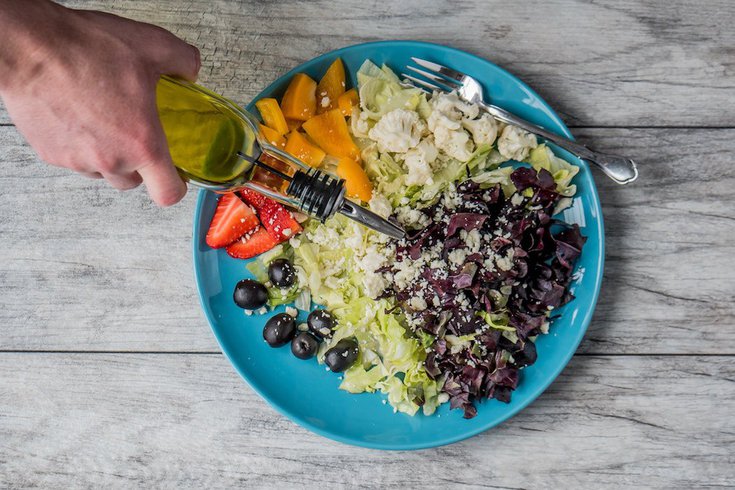
April 20, 2022
 Jessica Lewis/Unsplash
Jessica Lewis/Unsplash
Overall, the risk of preeclampsia was more than 20% lower among the women who followed a Mediterranean-style diet during pregnancy.
Women who eat a Mediterranean-style diet during pregnancy are less likely to develop preeclampsia, according to new data.
A study conducted by researchers from Johns Hopkins University found that the risk of preeclampsia was more than 20% lower among women who followed the diet — which consists of eating primarily vegetables, fruits, legumes, nuts, olive oil, whole grains and fish. Black women, who are at a higher risk of developing the complication, experienced the biggest reduction in risk.
Statistics show that adverse pregnancy outcomes for mother and baby are higher in Black communities in the United States. In the greater Philadelphia region, severe maternal morbidity rates are nearly 190% higher for Black women.
"The U.S. has the highest maternal mortality rate among developed countries, and preeclampsia contributes to it," Dr. Anum S. Minhas, chief cardiology fellow and a cardio-obstetrics and advanced imaging fellow at Johns Hopkins, said.
Preeclampsia is a condition that usually develops after 20 weeks of pregnancy. It is characterized by high blood pressure, protein in urine and other signs of organ damage. Left untreated, it can lead to serious and sometimes fatal complications for both the mother and baby – including preterm delivery and low birth weight.
Women who develop preeclampsia, as well as their children, have more than double the risk of having high blood pressure, a heart attack, stroke or heart failure later in life.
"Given these health hazards to both mothers and their children, it is important to identify modifiable factors to prevent the development of preeclampsia, especially among Black women who are at the highest risk of this serious pregnancy complication," Minhas said.
Up until now, strategies to prevent preeclampsia have been limited. However, this new study offers some encouraging results.
The study included more than 8,500 women who were enrolled in the Boston Birth Cohort between 1998 and 2016. Nearly half of the study participants were Black women and 28% were Hispanic women. The researchers created a Mediterranean-style diet score based on the participants' responses to food frequency interviews and questionnaires.
During the study period, 10% of the participants developed preeclampsia. Women who were obese and had diabetes before pregnancy were twice as likely to develop the complication when compared to women without those conditions.
Black women had the lowest Mediterranean-style diet scores and had the highest risk for preeclampsia, the researchers noted.
"We were surprised that women who more frequently ate foods in the Mediterranean-style diet were significantly less likely to develop preeclampsia, with Black women experiencing the greatest reduction in risk," Minhas added.
"This is remarkable because there are very few interventions during pregnancy that are found to produce any meaningful benefit, and medical treatments during pregnancy must be approached cautiously to ensure the benefits outweigh the potential risks to the mother and the unborn child."